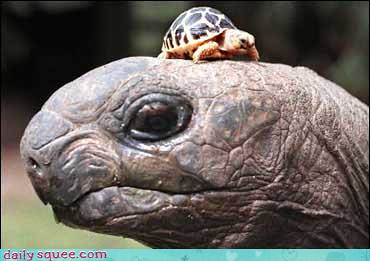[A version of this post appeared at my personal blog.]
I’m reading The Great Cat Massacre and Other Episodes in French Cultural History, by Robert Darnton. I’ve just finished the first chapter, which makes some interesting arguments about folk tales and their use in determining what non-elites/peasants thought about… well, anything in a time period where most of them lived nasty, brutish and short, unrecorded lives.
His argument is basically that one cannot just look at folktales – whether raw, or prettied up for modern audiences, or in translation or whatever – and determine much of anything. Instead, one needs to do two things: First, one needs to look at all the surviving folktales, all the variations, and pick up the themes. Second, one needs to compare those themes to the themes one gets from folktales in other regions. It’s only in the comparison of themes that one can sort anything, and even then it’s feeling around in the dark and hoping you can sort out the elephant from the cake.
ANYWAY, what I find very interesting (as an historian who looks for hints and tips of history of disability) is where people are totally talking about disability while at the same time dismissing it or not even acknowledging it.
It’s problematic, of course, to try and apply our modern notions of disability to the past and call it good. Even the concept of disability didn’t really exist the way it does now until sometime around the industrial revolution, and there are tons of examples of people being described by contemporaries in ways that modern audiences would consider “disabled”, but that’s never anyone’s concern. So, you’ll read in the past people described as taking to their beds for months at a time, having tics and the like, but no one remarks on it as anything other than just how that particular person is.
So, in a more formal review of A Midwife’s Tale, I wrote this:
There are ten references that could be read as an opportunity to discuss mental health in A Midwife’s Tale. Ulrich mentions four people who are considered insane by the people around them – John Howard is described on page 67 as having “sank into hopeless insanity”; Rebecca Foster is “mentis inops” according to a letter outlined on page 127; and both Tabitha and Mary Sewall are described by Ulrich as suffering from “mental illness” or derangement on page 260. Three people commit suicide, including James Purrington. One of Ballard’s patients seems to suffer from post-partum depression, while Ballard herself describes her mental state as one that reads as familiar to many people with depression on page 226.
There are a variety of reasons the author might not have gone into that discussion – the one I think is going on is that the book was published in 1990 and there was even less discussion of disability in history then than there is now – but it did stand out to me.
The Great Cat Massacre does something a bit different though, at least in the first chapter.
In describing what French peasant did when hard times were really hard, Darnton writes:
…life on the road meant ceaseless scavenging for food. The drifters raided chicken coops, milked untended cows, stole laundry drying on hedges, snipped of horses’ tails (good for selling to upholsterers), and lacerated and disguised their bodies in order to pass as invalids wherever alms were being given out. … They became smugglers, highwaymen, pickpockets, prostitutes. And in the end they surrendered in hopitaux, pestilential poor houses, or else crawled under a bush or a hay loft and died…
(pg 26)
Yes, of course Darnton. You describe a life of abject misery and back-breaking labour, so obviously people faked being disabled all the time.
Throughout this first chapter he says things like (in describing a folktale) “…two discharged soldiers draw lots to see which shall have his eyes put out. Desperate for food, they can think of no way to survive except by operating as a team of beggars, the blind man and his keeper” (pg 38), describes Simple Simon as “the harmless village idiot” (pg 40), talks about Rapunzel’s lover being blinded (pg 52), and witches adding additional hunches to hunchbacked beggars just because (pg 53).
And yet, obviously people faked being disabled all the time. Because there was nothing going on that might lead to actual disabilities.
I know, it’s a throw-away comment in a book originally published in 1984 (disability-focused history is more accepted now – we even have an association), but it bugs me. It’s not a unique occurrence, and it’s difficult to know quite how to respond.
For me, of course, the thing it does most is highlight people’s biases. When I previously tried to discuss this in a class, I could not actually get the professor to understand my complaint. “But people do fake disabilities all the time!” was her response, and there are only so many hours in a day one can give towards advocacy work.
But people with disabilities are quite common in the literature, if you actually pay attention to it.
Related:
Disability Social History Project
Disability Studies, Temple U Blog
Greg Carrier on Medieval Disability
Debilitas Mentis
